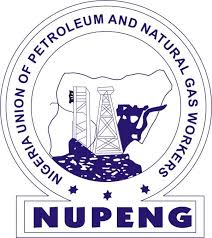By Prof. Adesoji Adesugba, 1st Deputy President, Abuja Chamber of Commerce and Industry; Former Chairman, Industrial Arbitration Panel
The confrontation between Africa’s biggest refinery and Nigeria’s most powerful oil union is more than a labour dispute. It is a test of the Constitution, the Petroleum Industry Act, and the future of fair competition in Nigeria’s downstream sector.
A Clash of Titans
Nigeria is witnessing a dramatic contest between the Dangote Group and the National Union of Petroleum and Natural Gas Workers (NUPENG). With the new refinery now operational, Dangote has rolled out over 4,000 gas-powered trucks to deliver fuel directly to consumers, bypassing middlemen and promising efficiency gains.
NUPENG, accusing Dangote of being “anti-union,” has threatened industrial action. The government has intervened, but the stakes remain high: this is not just about workers’ rights, but about who controls Nigeria’s fuel arteries.
The Law Is Clear
Nigeria’s Constitution guarantees freedom of association under Section 40. That freedom includes the right to join a union—and equally, the right not to. This principle has been affirmed by the courts. In Osawe v. Registrar of Trade Unions (1985) 1 NWLR (Pt. 4) 755, the Supreme Court stressed that while workers have a constitutional right to form or belong to unions, such rights must operate within the framework of the law and cannot be exercised coercively.
Similarly, in Mix & Bake v. NUFBTE (2004) 1 NLLR (Pt. 1) 247, the National Industrial Court held that no employer can impose union membership on employees, and no union can conscript unwilling workers into its fold. The Labour Act itself reinforces this principle in Section 9(6), which prohibits both employer victimisation and union coercion.
Taken together, these authorities establish that Dangote’s drivers have full liberty to unionise if they choose—but cannot be forced into NUPENG’s fold.
What’s at Stake
Beyond legal rights lies the economic question. Dangote’s direct-to-market model promises lower costs and a more reliable fuel supply, tackling inefficiencies that have long plagued the sector. This vision aligns with the Petroleum Industry Act, which seeks to foster competition and open access to infrastructure.
But monopoly is also a danger. If Dangote’s logistics empire becomes the only viable pipeline, Nigerians may trade one bottleneck for another. Here the Nigerian Midstream and Downstream Petroleum Regulatory Authority must act, using its powers under the PIA to enforce open access and prevent market capture.
A Better Path
The way forward lies in balance. Government must protect workers’ freedom of choice while ensuring employers respect organising rights. Unions should win members through persuasion, not intimidation. Employers must compete on efficiency, not exclusion. And regulators must guarantee a level playing field.
The courts have provided guidance here too. In A.G. Oyo State v. NLC (2003) 8 NWLR (Pt. 821) 1, it was held that while unions have a right to protest, such rights cannot extend to paralysing essential services where public interest is at stake. Industrial peace must therefore be balanced against economic survival.
Fuel is the lifeblood of the economy, and strikes only punish ordinary Nigerians. Disputes must be channelled into structured mediation or arbitration, ensuring essential services are never held hostage to brinkmanship.
The Bigger Picture
This confrontation is not a morality play with heroes and villains. It is a test of whether Nigeria can enforce its own laws fairly, prevent abuse of power by either unions or corporations, and finally build a downstream sector that works for the people.
If Nigeria gets this right, it could usher in an era where fuel distribution is cheaper, more reliable, and more transparent—where unions protect by persuasion, and businesses thrive by innovation. The challenge is formidable, but so too is the opportunity.




